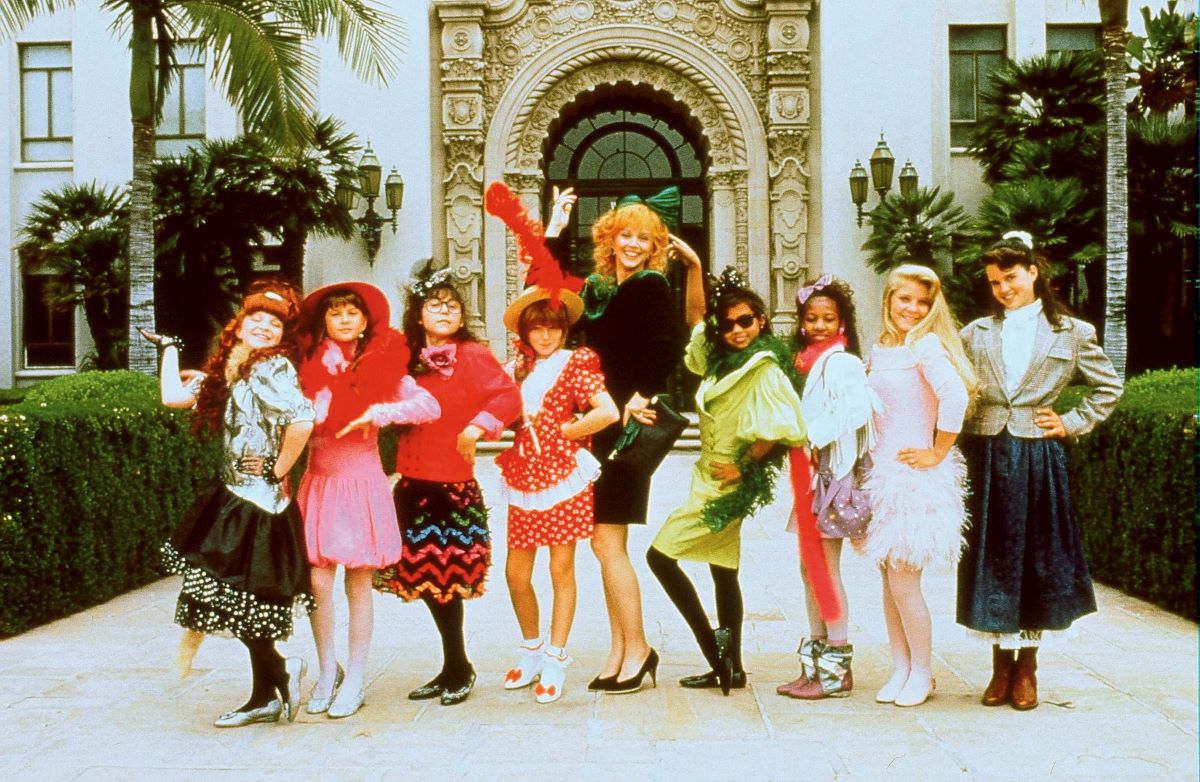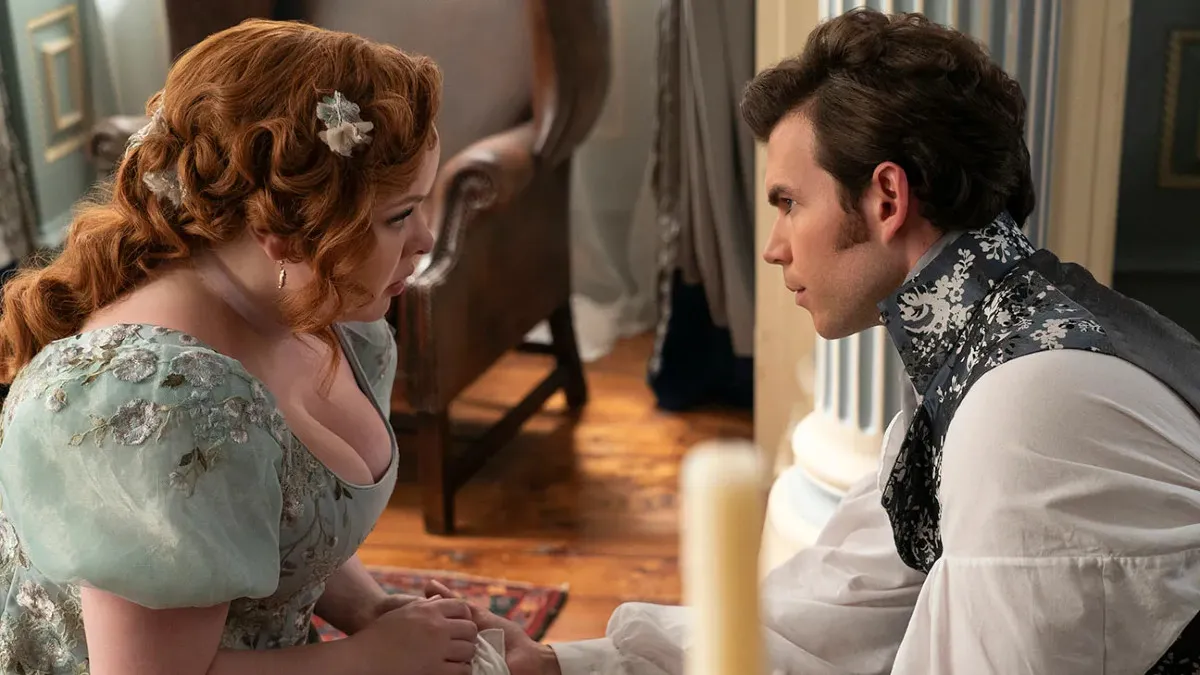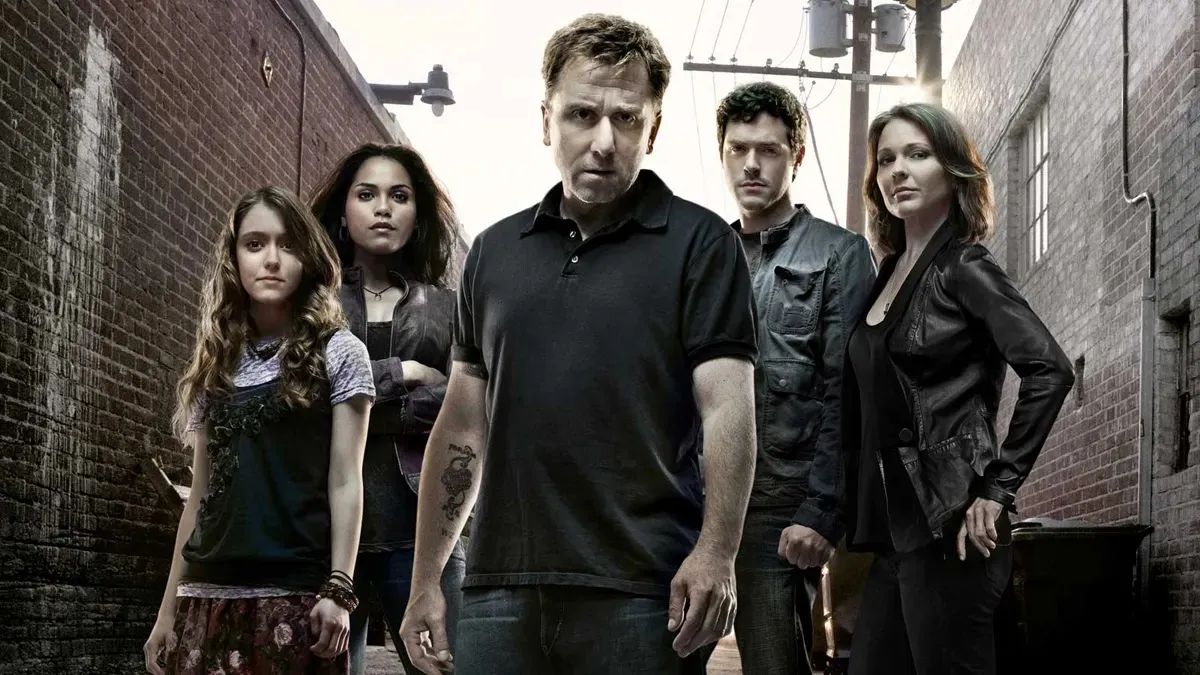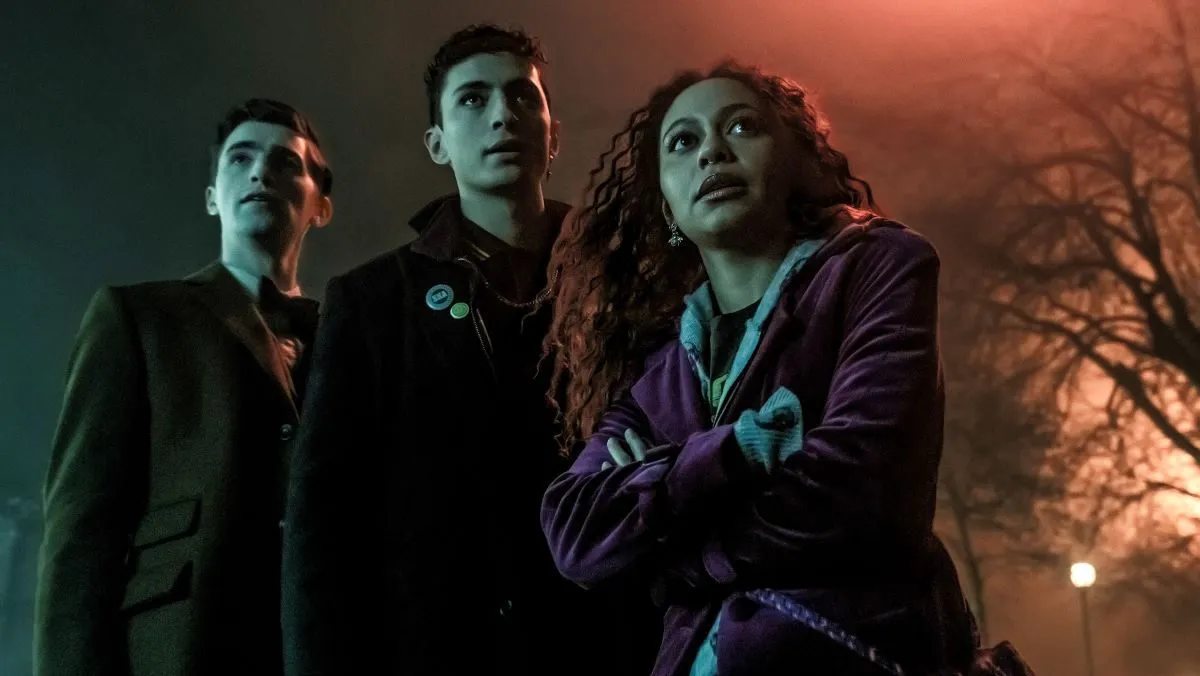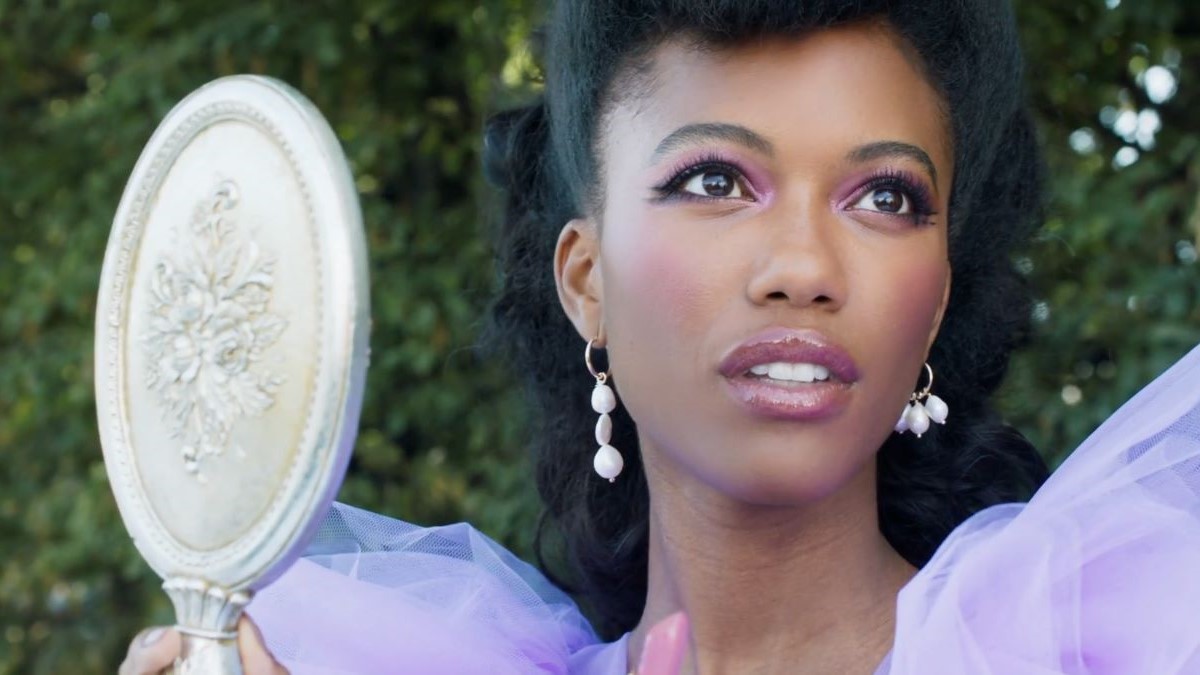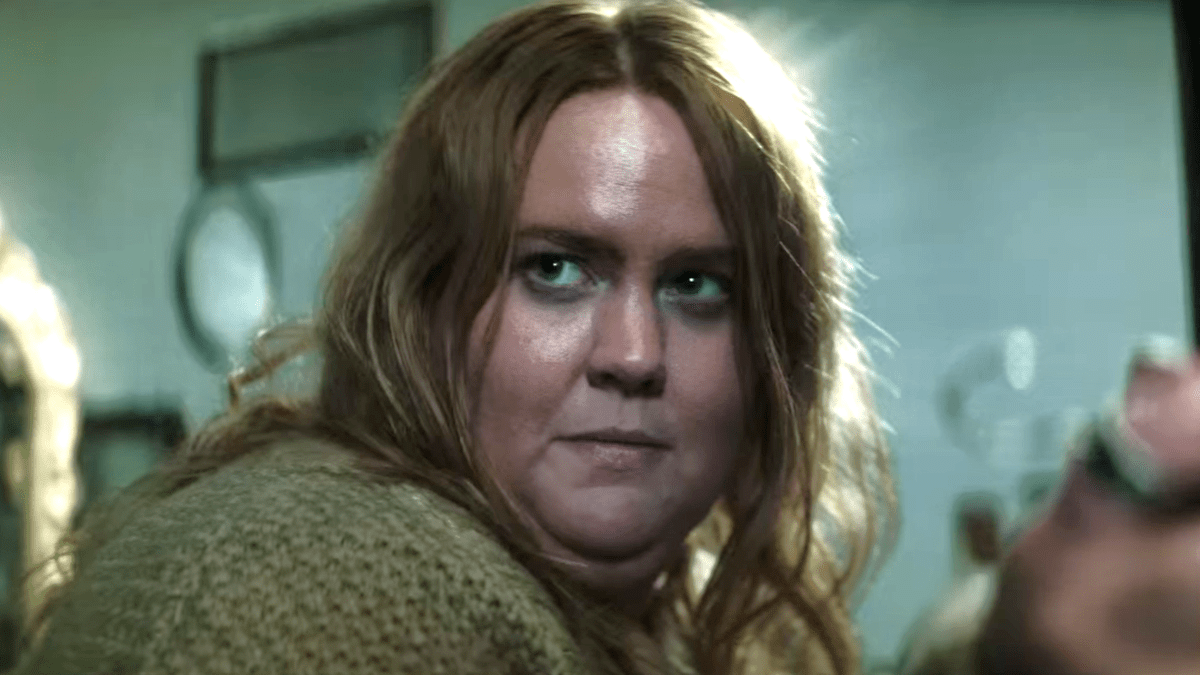Beverly Hills, what a thrill! Sunday, March 24, 2024, marks the 35th anniversary of the tween comedy Troop Beverly Hills. This cult classic is a product of its time, using tropes and references that might not translate today, but there are reasons why this film meant so much to tweens like me in the early 1990s.
What’s Troop Beverly Hills about again?
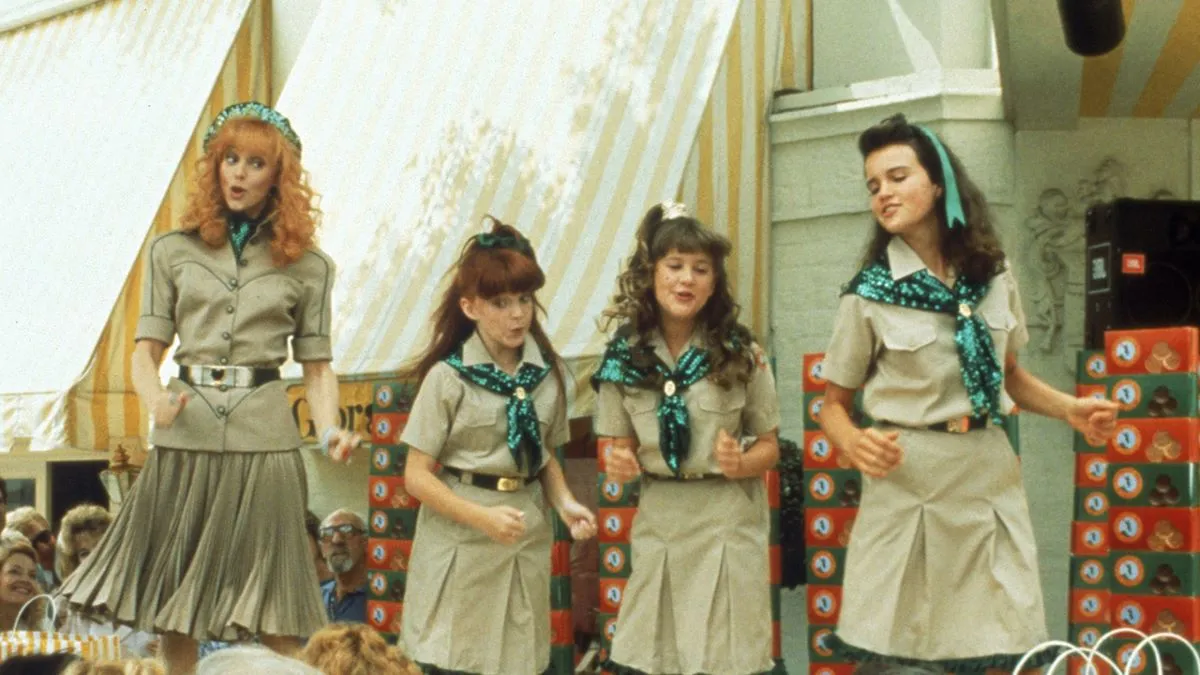
Shelley Long plays Phyllis Neffler, a Beverly Hills resident and professional socialite who’s going through a divorce from her muffler magnate husband (Craig T. Nelson) as she navigates her relationship with her 13-year-old daughter, Hannah (Jenny Lewis). To be more involved in her daughter’s life, she applies to be the troop leader for her daughter’s Wilderness Girls troop.
The Beverly Hills troop doesn’t have a great history. A parade of troop leaders have signed up to work with the girls on a whim, only to leave them high and dry. Meanwhile, the girls feel abandoned by the adults in their lives and like they haven’t acquired any real life skills.
While Phyllis genuinely tries to connect with the girls and support their Wilderness Girls efforts, albeit in a very “Beverly Hills” way, the District Leader of the SoCal Wilderness Girls, Velda Plendor (Betty Thomas), is determined to get the Beverly Hills troop disbanded, because they don’t adhere to her very specific ideas of what being a Wilderness Girl means.
The girls come of age and grow into themselves as they earn patches and sell cookies. Meanwhile, Phyllis grows and evolves as she reexamines her priorities through her work with the girls.
A very ’80s movie
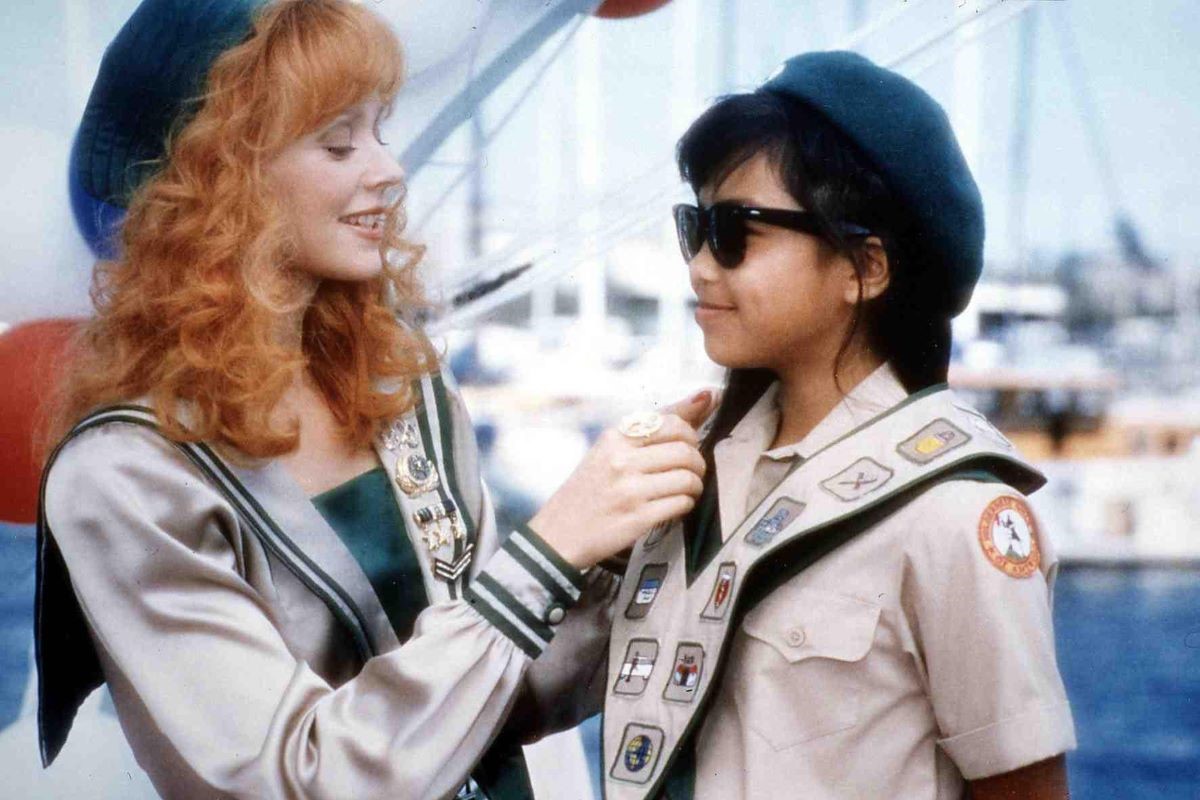
There’s some stuff to flag if you’re introducing Troop Beverly Hills to a young person today. First, the dated references will need translating. Cameos from the likes of Robin Leach and Dr. Joyce Brothers and lines like “Patches? We don’t need no stinkin’ patches!” will go over most kids’ heads.
For one of the patches the girls are working toward, Phyllis relates history to something the girls will understand … jewelry. She “teaches” them about the Native history of turquoise jewelry while wearing a feathered headdress. Young people watching would definitely benefit from a conversation about cultural appropriation.
Lily (Aquilina Soriano) is a Southeast Asian member of the Beverly Hills troop, and the daughter of Dictator Bong Bong (of an unspecified Southeast Asian country) and Karina. They’re obviously based on Ferdinand and Imelda Marcos, who ran the Philippines for two decades. The visual reference and the discussion of shoes will be lost on young people who didn’t grow up with the Marcoses in the news.
It’s worth a mention that the one Asian member of the troop lives in Beverly Hills because she’s the daughter of an Asian dictator with a home there.
Likewise, there’s Jasmine (Tasha Scott), a Black member of the troop and the daughter of a famous boxer. It’s interesting that the only Black member of the troop lives in Beverly Hills because her father is an athlete.
These aren’t bad things in and of themselves. After all, to afford Beverly Hills, you already have an uncommon experience in having a certain amount of wealth. But it’s worth discussing that the only Black and Asian characters were imagined into a Beverly Hills troop by playing into certain stereotypes. A Black athlete. An Asian threat to democracy.
There is a Latina maid named Rosa (Shelley Morrison), and she’s absolutely “part of the family.” Morrison’s performance is great. While there’s no shortage of IRL Latina maids in Beverly Hills, and there’s nothing inherently insulting about playing or being a maid, Rosa is one in a long line of Latina maid roles in filmed fiction (including Morrison’s later turn as Rosario on Will & Grace) that makes up one of the few stereotyped roles that Latinas in Hollywood have been guaranteed consistently.
Lastly, there’s a weird story element re: class. As Velda and her sidekick Annie (Mary Gross) are plotting against the Beverly Hills troop, every time Annie expresses second thoughts, Velda brings up “rescuing” Annie from working at K-Mart by giving her the job as her assistant. Whenever Annie starts to feel affinity for the girls, Velda threatens her with “Attention K-Mart shoppers …” to bring Annie back in line.
Velda’s comeuppance at the end of the film? She’s fired from the Wilderness Girls, and ends up working at K-Mart. For someone who has a bone to pick with Beverly Hills privilege, Velda sure is opinionated about what jobs deserve respect. What the hell’s wrong with working at K-Mart? Women should be able to survive in the woods, but feel shame about working behind a cash register in a blue-collar job?
Tween girls of color discovering their power

When I was a brown, Latina tween from a lower-class family in Queens, New York, the nuances of those things didn’t always register for me. What did register, and what made the film important to me and my friends, was the way that girls were taken seriously by the film. The troop, with Phyllis as their leader, became a team. That required each of them, in their own way, to lean into what makes them “weird” or “different” and see those things as strengths.
That allowed us girls watching Troop Beverly Hills to own our strengths and “weirdness,” too.
Some of the most memorable scenes in Troop Beverly Hills involve Jasmine, and the scene where she tells off the cop who pulls her dad over for Driving While Black is iconic.
You can see her parents’ unease as she launches into her tirade. Like most real-world Black parents, wealthy or not, they’ve likely talked with her about interacting with the police, but this is a film geared toward tween and teen girls, giving them a vision of girls exerting power. “Shake the man’s hand and let’s be on our way!” became a shorthand among girls my age to express telling off anyone or anything that would think less of us because of who or what we are.
While Lily had the most outlandish background of all the girls, what I loved about her is that she absorbed and led with her parents’ confidence and revolutionary spirit. (Though hopefully not their politics or leadership style!) When asked to spill the dirt on Phyllis’ troop leadership, she stands and says, “You can torture me if you want, but I’ll never talk!” It’s a comedic moment, but it pointed to a strength in Lily that was cool to see in a brown girl.
‘Wealth as Weirdness’
There is, of course, another iconic Jasmine-led scene. Decked out in a Tina Turner-inspired wig, she leads the troop in a song called “It’s Cookie Time!” in their effort to sell Wilderness Girl cookies.
There’s a trope in comedy that I’ll call Wealth as Weirdness, where the monied, privileged protagonist (or ensemble) is seen as an outcast and treated poorly in the world of the film. The entire world of the film is mean to the protagonist, keeping them from their ultimate goal because their money keeps them from being taken seriously.
Legally Blonde is a film like this. Elle Woods’ parents could’ve very easily bought her way into Harvard, but the plot of the film centers the fact that she wants to be taken seriously as a lawyer.
In the world of Troop Beverly Hills’ Wilderness Girls, coming from wealth equals “shallow” and “incompetent,” and is apparently something that hundreds of girls will make fun of and laugh at (loudly!) at a gathering. The troop works hard to prove otherwise and considers themselves “weirdos” for not knowing how to do anything the other, “normal” girls can do.
While this might annoy some as an example of “First World Problems,” centering characters in heightened circumstances allows us to look at certain things at a distance, providing an emotional buffer that allows us to look at relatable, human problems without the burden of our personal baggage. While we could always use more stories about actually marginalized people, films like this, or shows like The Crown, allow a different perspective on familiar experiences.
Remove the money, and this story is about girls applying what they learn to their lived experiences. It’s about bringing their full selves to an organization that never accounted for them and proving that their unique perspective and skills are actually useful to the group.
Being “The Broke Friend”
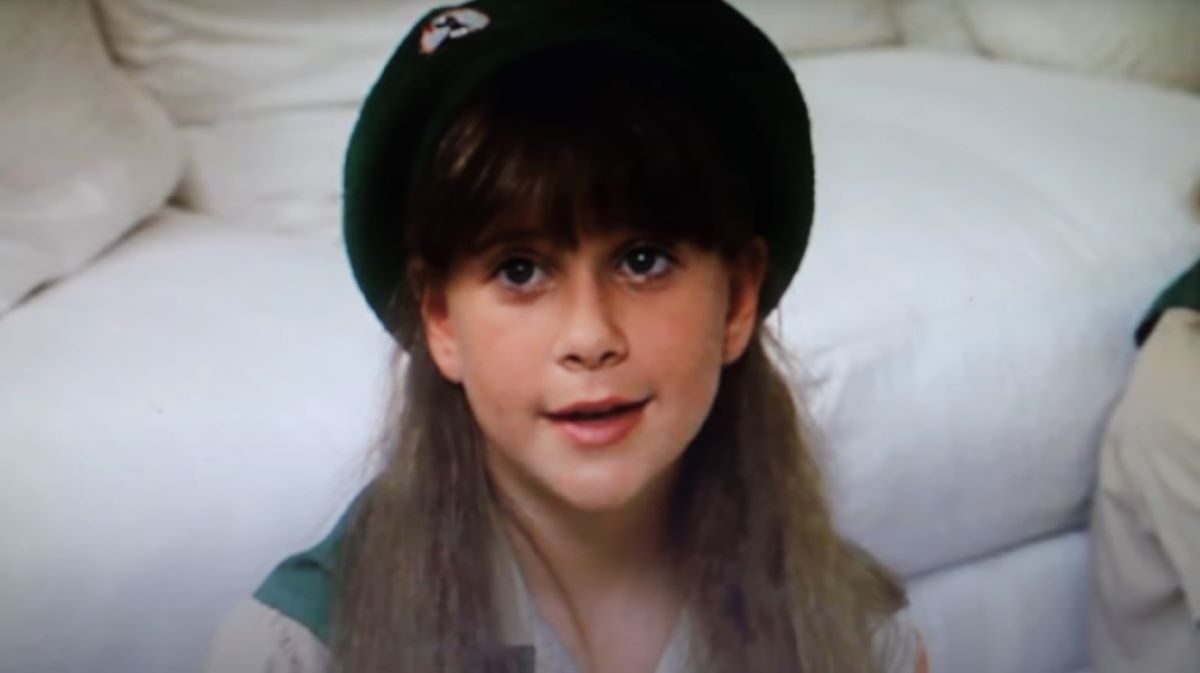
I was “The Broke Friend” as a kid. The one who could never afford to go to cool places with my friends unless someone lent me money. So, the girl I related to the most in Troop Beverly Hills was Emily (Kellie Martin), the daughter of a journeyman actor who hasn’t worked in a long time and can’t afford to give Emily her Wilderness Girls dues, or money for her Wilderness Girls activities.
Watching Emily get defensive and leave the room when Phyllis explains that the girls will each need to chip in to bring money to participate in an event hit really close to home. Yes, this girl lived in Beverly Hills, but I understood the powerlessness of being in a group of people for whom seven dollars was nothing while it’s a lot for you.
I also understood the power of having good friends in those moments. When Tiffany (Emily Schulman) lends Emily money, I was reminded of the friends I had who’d done similar things for me, and I even remembered those rare times when I was able to help other girls similarly.
It highlighted that true friends never judge you for not having, and they’re not conditional about the help they provide. Tiffany joked about charging interest, but she would never. She could help, and she did, because Emily was her friend and Tiffany wanted her to be included.
Troop Beverly Hills wasn’t a success in theaters, but once it went to home video and cable and started making the rounds at slumber parties, it became a cultural touchstone for any girl who’s ever felt like she wasn’t good enough or didn’t belong—which is basically every girl in one way or another.
35 years later, the film still resonates. It remains a fun and heartfelt comedy that offers girls a story where they can see themselves in all their complexity told with humor and respect.
(featured image: Columbia Pictures)



